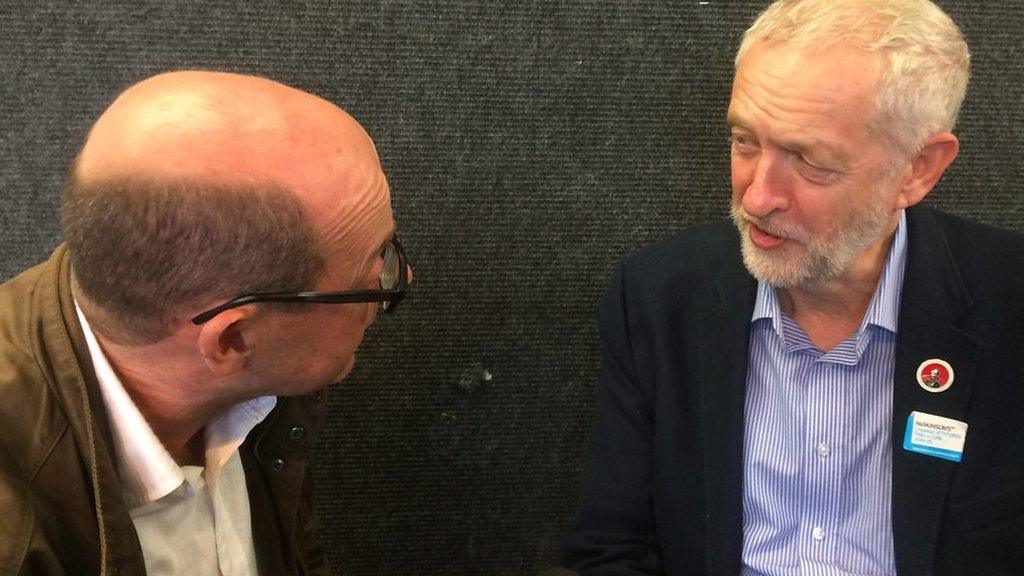Labour's NEC fails to agree how shadow cabinet should be formed
- Published
Labour "have to put the band back together", says deputy leader Tom Watson.
Labour has failed to agree on how to form its shadow cabinet at a meeting of its national executive committee.
Members were unable to reach a compromise after eight hours of talks.
The committee had considered plans - backed by deputy Leader Tom Watson - to reinstate elections to the shadow cabinet. Since 2011, the party leader has selected his own top team.
Mr Watson said the proposal could help Labour "put the band back together" for a possible early election.
A proposal to decide on the details of the plan ahead of Saturday's leadership election result was voted down, by 16 votes to 15.
Mr Corbyn was among those to vote against it, but did agree to further talks with Mr Watson and other senior figures before the next NEC meeting this weekend, at the party's conference in Liverpool.
USDAW General Secretary says the Labour party's situation is "worst" he's seen in 40 years
Mr Watson said afterwards that it was a "very positive meeting".
He added: "We agreed 22 changes to our rules and guidance, all sorts of positive things I'm sure the media will be really interested in."
Many MPs see elections as a way of constraining Mr Corbyn, should he be re-elected as leader, and ensuring a balance of opinion at Labour's top table.
Supporters of Mr Corbyn say any plan should call for party members and activists to also have a say in any elections.
The Labour leader has said there is a "thirst for democracy" in the party and he backs a "widening of the franchise".
Mr Watson also called for Labour's leadership election rules to be changed to exclude registered supporters who pay a one-off fee to vote.
He described their participation as "unpopular" and suggested a return to a franchise of party members, trade unionists and MPs.
In last year's contest, 84% of the 105,598 registered supporters who paid £3 to vote backed Jeremy Corbyn.
This time around, they were asked to pay £25 to take part.
Despite the increased fee, 129,000 people are thought to have applied successfully for a one-off vote in the contest between Mr Corbyn and his challenger Owen Smith - the result of which will be announced on Saturday.
Registered supporters were given a say in the choice of leader as a result of changes brought in by Ed Miliband, and approved by the party in 2013, designed to open up the process to a wider audience.
'Rushed'
Critics have said it allowed the leadership election to be hijacked by far-left groups with their own agenda - although Mr Corbyn easily won the most support among all groups - including party members, trade unionists and other affiliated supporters.
Mr Watson, who himself was elected deputy leader last year using the same franchise, said the reforms had been "rushed" and "unpopular".
He suggested a return to the previous system used to elect Mr Miliband and his predecessors - in which voting was limited to an electoral college of party members, trade unionists, affiliate supporters and elected representatives of the party.
"We created a new category of member - a registered supporter - that was pretty unpopular in all sections. We want to remove that and we want also want to enfranchise ordinary trade unionists in the process," he said.
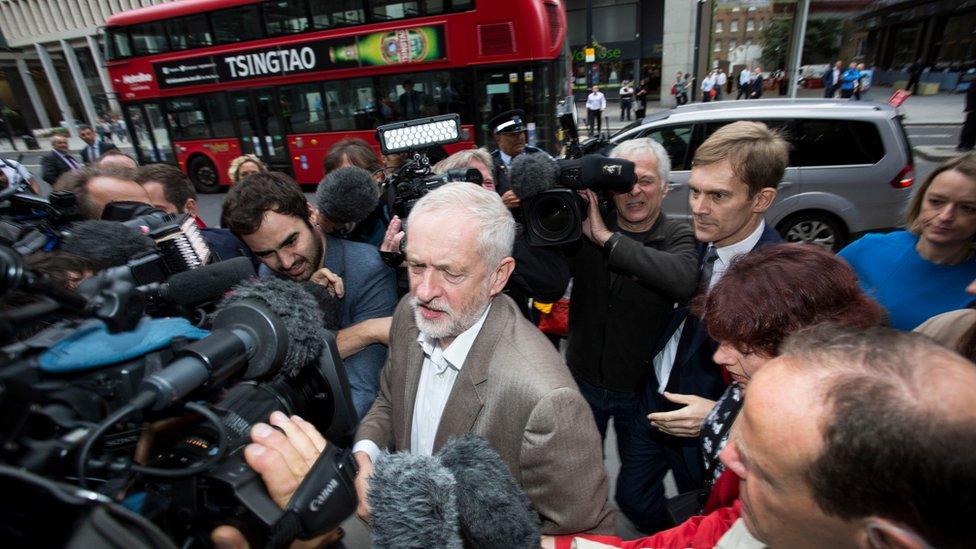
Jeremy Corbyn says he can reunite Labour if he wins the leadership contest
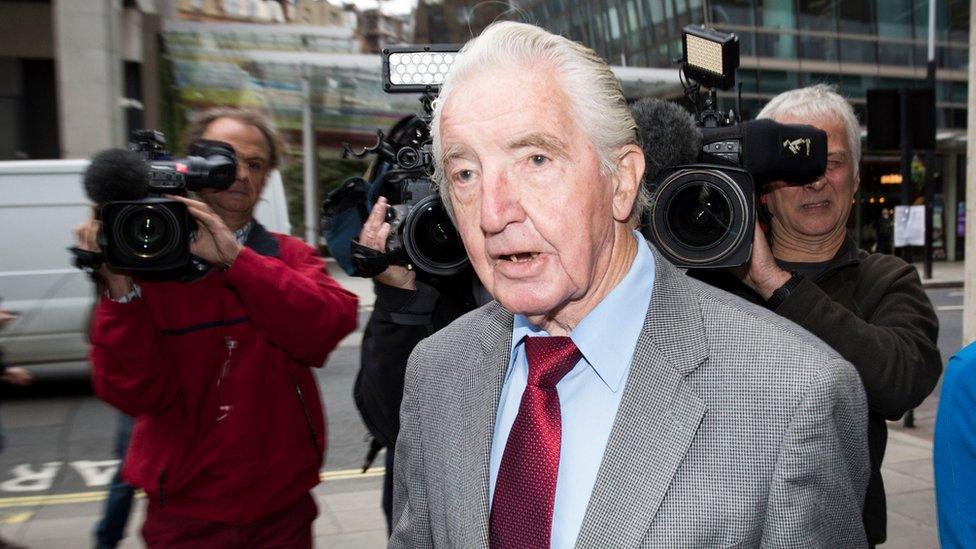
Dennis Skinner said the media were trying to "get rid of" Mr Corbyn
Mr Watson said he did not want the changes to be seen as a threat to Mr Corbyn and suggested they would only apply after he stood down, whenever that may be.
But the BBC's assistant political editor Norman Smith said the move would be seen as an attempt to make it much harder for a left winger like Mr Corbyn to be elected.
Arriving at the NEC meeting in central London earlier, veteran Labour MP Dennis Skinner accused the media of "trying to get rid of" Mr Corbyn.
- Published20 September 2016
- Published19 September 2016
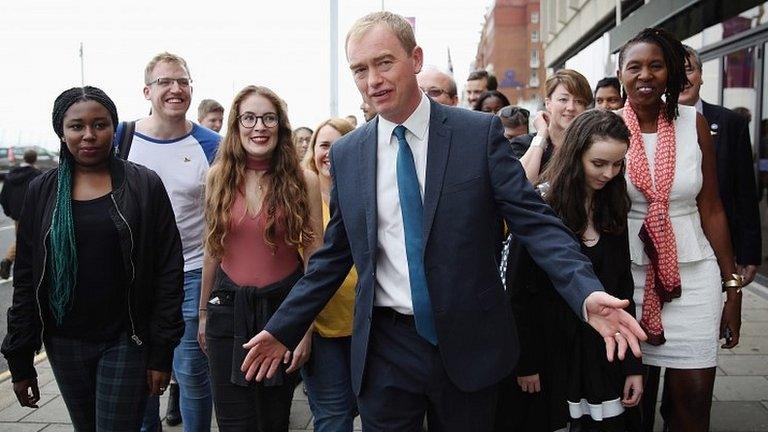
- Published20 September 2016
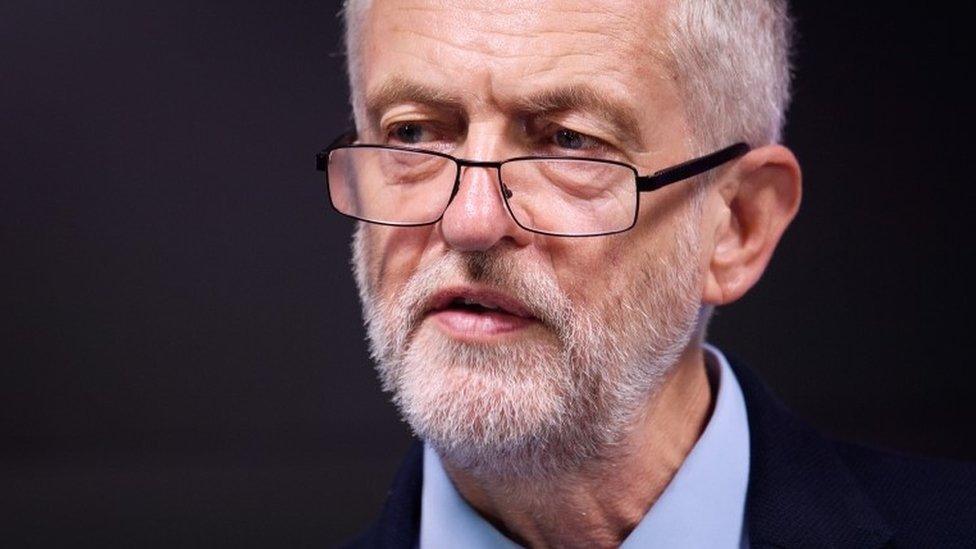
- Published19 September 2016
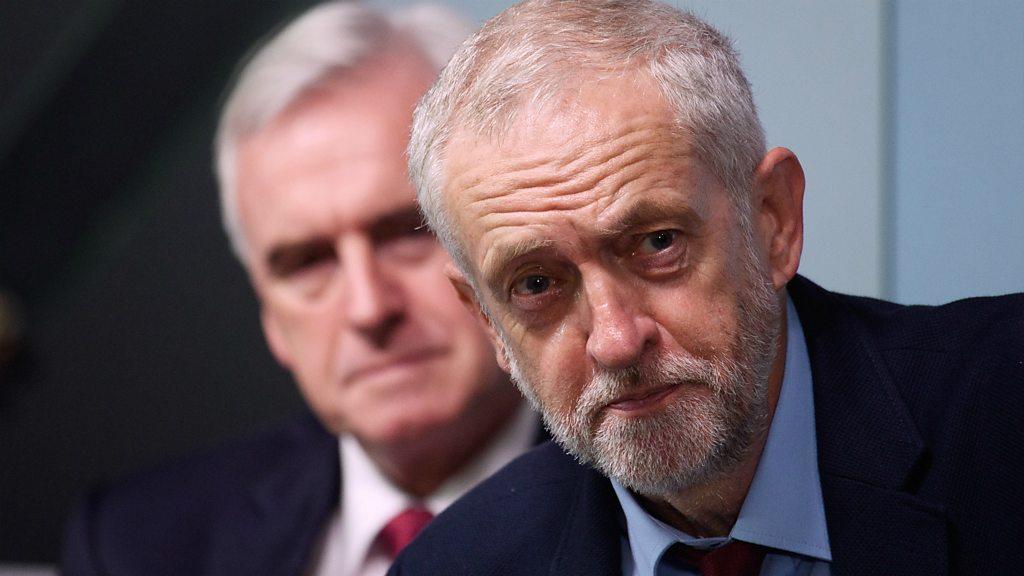
- Published19 September 2016
